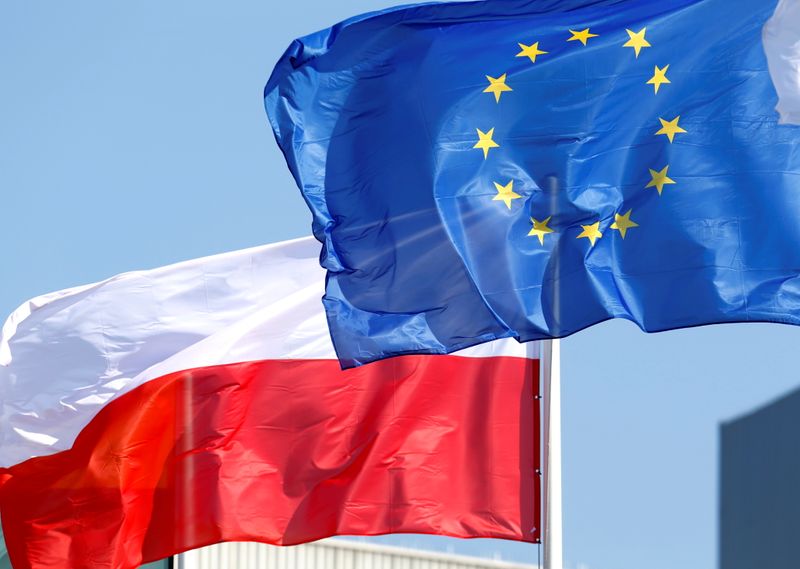BRUSSELS (Reuters) -The European Commission has asked Poland not to question the primacy of European Union law over national legislation, as this is the fundamental principle of the 27-nation bloc, a Commission spokesman said on Thursday.
The Commission, which is the guardian of EU treaties, wrote to the Polish government on Wednesday asking Warsaw to withdraw a motion the Polish prime minister filed with Poland’s constitutional court seeking a ruling on whether the country’s constitution or EU treaties are more important.
“The Commission is concerned about this motion as it contests fundamental principles of EU law, in particular the primacy of EU law,” Commission spokesman Christian Wigand told a news briefing.
Poland’s Prime Minister Mateusz Morawiecki said he had no intention of withdrawing his motion.
“I considered our right to submit our question as important, as such a potential collision (between the laws of Poland and the EU) is possible,” Morawiecki told a news conference.
Poland has been at odds with the EU since the euro-sceptic and nationalist Law and Justice (PiS) party took power in 2015. Poland and Hungary are under formal EU investigation for not respecting the EU’s democratic values.
The executive Commission’s letter to Poland follows the start of a Commission legal procedure against Germany on Wednesday, aimed at forcing Berlin to assert the primacy of European law over national court decisions after Germany’s highest court challenged a judgement by the EU’s top court.
“All judgements of the European Court of Justice are binding on Member States’ authorities, including national courts. The Commission therefore requests the withdrawal of the motion of the prime minister with the Constitutional Tribunal,” Wigand said.
He said Poland had one month to reply.
(Reporting by Jan StrupczewskiAdditional reporting by Agnieszka BarteczkoEditing by Timothy Heritage and Frances Kerry)























